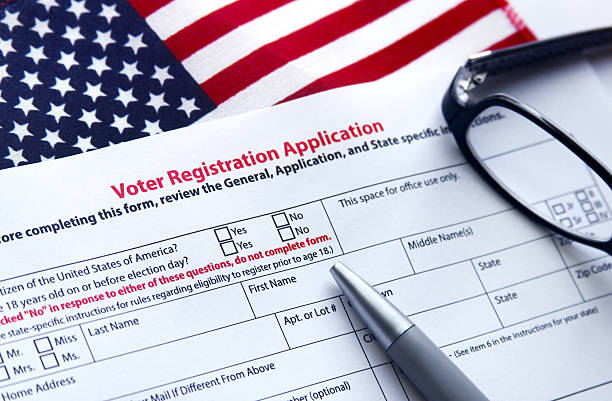Wyoming’s “crossover voting bill” was allowed to become law this month, without Gov. Mark Gordon’s signature.
House Bill 103 says voters who want to change their political party affiliation must do so before candidates begin filing for office in the primary election.
For a general election, the bill says party affiliation changes must be completed at least 14 days before Election Day, “or at the polls on the day of the general election, or when requesting an absentee ballot for the general election.”
‘Ambiguity’
In a March 2 letter to the Speaker of the Wyoming House of Representatives, Gordon said HB 103 “has ambiguity” and “the potential to deny participation in a major party primary election in a few limited circumstances.”
“The bill’s sponsor assured me that was not his intent, (and) he and those who will be responsible for implementing the statute have agreed to work on clarifying the legal ambiguity before the next primary election,” Gordon said. “(But) no matter what, the changes resulting from this adjustment to Wyoming law will cause some confusion in the coming primary. …
“I urge voters to learn about these changes so that they may vote their desired major party ballot in 2024.”
Republican Party
Gordon also noted in his letter that “nearly 93 percent of Wyoming voters are now registered Republicans, making the presumed changes (in HB103) perhaps more academic than real.”
Wyoming Sen. Cale Case, R-Lander, also pointed to the “success” of the Republican Party in the state when HB 103 came up on the Senate Floor last month, noting that all but two members of the Wyoming Senate are Republicans, as are all of the state’s top-five elected officials and all three members of the Wyoming Congressional delegation, not to mention people elected to “county offices clear across our state.”
“The winner of the majority party’s primary goes on to win the election 99.9 percent of the time,” Case said. “The primaries decide the contests across the state in the vast majority of instances.”
That’s why many people chose to change their political party affiliation to so they could vote in the Republican primary last year, Fremont County Clerk Julie Freese told the House Corporations, Elections, and Political Subdivisions Committee in January.
“Once the primary election gets over, (voters) don’t feel like there’s a lot of ways that they can participate,” Freese said. “They want to be involved in the process.”
Case said HB 103 would end up “restricting” those crossover voters – including people in the “minority party” as well as the “moderate folks that don’t subscribe to everything in the majority party’s platform” and “the independent voters that wish to choose which primary (they) participate in.”
“I stand for them,” Case said. “I stand for a system of government that is representative of the people as a whole.”
‘Keep the freedom’
Riverton High School government teacher Becca Pierson is one of those “moderate” Republicans who appreciates “the fact that I feel like I can pick who I want to vote for,” according to her testimony on HB 103 in front of the Senate Revenue Committee last month.
In her government classes, Pierson said she teachers her students that they “have the freedom to choose” who they vote for, and they “get to decide that by looking at the candidate and deciding on what their platform is.”
“If they see some candidate that is in the Libertarian Party (and they) want to switch over and maybe vote for her … how are they going to do that last minute?” Pierson asked the committee. “My kids deserve that right … and I hope that we can keep the freedom that we’ve had for many years and continue that.”
Amendments
A dozen separate amendments were proposed to HB 103 as it made its way through the legislative process this year, indicating to Wyoming Sen. Ed Cooper, R-Ten Sleep, that “there is confusion in the bill.”
“I agree with the concept, (but) what’s wrong with the bill is the ambiguity,” Cooper said. “We’ve tried to address it 12 times. It’s still there.”
He later voted against HB 103 on third reading in the Senate, as did Case.
Wyoming Sen. Tim Salazar, R-Riverton, voted “aye,” noting beforehand that “my constituency wants this bill.”
“The current system, in my opinion and in the opinion of my senate district, is broken – it doesn’t work,” Salazar said. “I believe (HB 103) does protect the primary process.”
HB 103 was co-sponsored by Wyoming Reps. Sarah Penn, R-Lander, and John Winter, R-Thermopolis, and all of Fremont County’s representatives voted in favor of the legislation when it came up on third reading in the Wyoming House.


